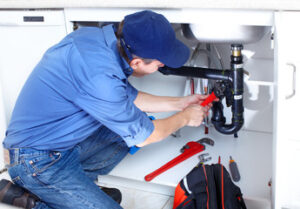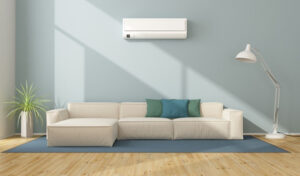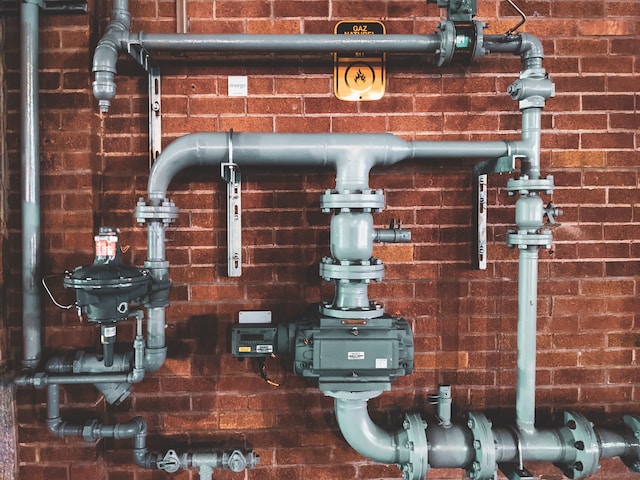Commercial plumbing involves installing, repairing, and maintaining plumbing systems in larger buildings such as restaurants, retail spaces, and office buildings. These systems must meet stricter safety and performance standards than homes.

It is also more difficult to pinpoint issues like leaks in a busy commercial space, meaning they may have already caused significant damage by the time they are noticed.
Compared to residential plumbing, which tends to be more cyclical, commercial plumbing services are less volatile and benefit disproportionately from economic rebounds. Commercial construction and renovation expenditures also rebound faster than homebuilding projects, boosting demand for plumbing products.
As the economy recovers and people spend more money on upgrades to their homes, they may also need new or additional fixtures for their bathrooms, kitchens and other rooms. This, along with the increased prevalence of smart appliances and other technology in homes, is boosting demand for advanced plumbing fixtures.
Commercial spaces are in constant use, and as such, the drains and freshwater plumbing systems experience more wear and tear than those in residential settings. This increases the need for regular cleaning, repair and maintenance. It also means that plumbing services must be available on shorter notice than for homes.
Larger companies have an advantage in addressing this increased need, as they can better afford to pay the salaries, benefits and education required to attract specialized talent. They also have the resources to train staff and invest in the latest technology to help streamline service processes.
This heightened need for quality and reliable plumbing services is driving consolidation within the industry. As a result, larger players are increasing their geographic coverage and expanding their product offerings.
The reopening of businesses after the pandemic and a recovery in homebuilding is creating demand for plumbing services. Many integrated service providers that offer both HVAC and plumbing have also found success in cross-selling their services to households. For instance, homeowners should have their water heaters and drains serviced around every five years or so. This recurring revenue opportunity can help to boost overall revenue for plumbing services companies.
Multiple Buildings
Many commercial buildings house multiple offices, retail shops, restaurants and other businesses. This means there are often several bathrooms, kitchens and other facilities that all need their own plumbing systems. These complex structures can also include multiple floors, making it harder to reach plumbing problems when they arise.
In addition to piping for toilets, sinks and showers, these buildings may need additional water lines for appliances like dishwashers. They may also need specialized pipes to handle dangerous chemicals or flammable materials. This can add to the complexity of the plumbing system and require a professional with experience working on these types of structures.
Another challenge with commercial buildings is the number of people using the bathrooms and other facilities each day. This can lead to frequent drain clogs and other issues that need to be addressed quickly. For example, if a toilet in a restaurant or office building is leaking, it could result in a costly mess that needs to be dealt with immediately.
It’s also important to note that when working on commercial properties, plumbers aren’t always dealing with the actual property owner. This means that they may need to get approval from an administrator or other higher-ranking official before proceeding with repairs.
Preventive maintenance can help protect the value of a commercial building and prevent costly repairs down the road. Regular inspections can spot small issues and repair them before they turn into bigger problems. A well-maintained commercial plumbing system can also boost a business’ reputation and contribute to customer satisfaction. In addition, a well-functioning plumbing system can help preserve the building’s structure and avoid damage from moisture buildup or mold growth.
More Complex Structures
Whether commercial plumbing services are for restaurants, office buildings, shopping malls, warehouses, or apartment complexes, these structures have much larger and more complicated water systems than residential homes. And because they’re occupied by more people, they tend to require more regular maintenance and repairs than single-family houses.
Commercial plumbing includes the installation and maintenance of piping that supplies water to multiple fixtures throughout a building. These may include sinks, toilets, showers, faucets, dishwashers, and washing machines. It also includes drain pipes that channel wastewater to sewer lines or septic tanks. In addition, kitchens in commercial spaces often have grease traps or interceptors to keep fats, oils, and residue from clogging the pipes.
These systems have to be able to handle high volumes of usage at the same time, which is why they’re generally bigger than their residential counterparts. They also must be able to maintain adequate water pressure, especially in higher-rise buildings where gravity could otherwise prevent the flow of water.
These larger, more complex structures require more specialized equipment to install and service. And because they’re occupied by many more people than residential properties, they can experience a greater volume of water usage at once. This means that their pipes are under more stress, which can lead to faster wear and tear. That’s why it’s important for businesses and other commercial entities to have their plumbing services regularly performed by licensed plumbers. They can catch and repair issues before they become larger, more costly problems.
Higher Standards
Commercial plumbing systems often have higher safety standards than residential ones. They must meet more rigorous specifications, such as temperature control and backflow testing. They must also be designed with more durable materials to stand up to heavier usage and frequent repairs.
These factors require a different skill set from residential plumbers, including the ability to work on larger systems and more complex projects. It’s important for a commercial plumbing contractor to keep up with new developments in the industry and continue their education. It’s also crucial to have a strong local presence in order to attract new clients.
Establish a legal structure for your business, such as a sole proprietorship, partnership or LLC. Register your business with the state and obtain all necessary permits to operate your company. Research your competition and develop a marketing strategy that includes advertising, online promotion, social media and customer referral programs.
Leaky faucets may be annoying in residential homes, but they’re a major problem in offices and other commercial spaces where people are constantly using sinks and toilets. Commercial plumbing systems must be designed to withstand heavy usage, with large fixtures and high-grade piping that can resist the constant strain.
In addition to standard plumbing services, commercial contractors offer preventative maintenance contracts that can save businesses money and prevent large-scale problems down the road. These preventative measures can include things like cleaning drains, repairing water pumps and fixing leaky pipes. The goal is to catch problems before they become bigger issues, which can lead to costly structural damage and disruptions to day-to-day operations.
Long-Term Needs
Plumbing issues are often more extensive and time-consuming in commercial spaces than in residential buildings. It’s because these systems are used by more people and are subject to higher amounts of stress than residential systems. Even something as simple as a clogged toilet or sink can impact many individuals and cause substantial problems for a business. This is why having a reliable, high-quality plumber to call in emergency situations can be a lifesaver for businesses.
Aside from handling emergencies, professional plumbers can help keep a commercial property’s plumbing in good working condition. This can be done by conducting regular inspections and preventive maintenance. This includes checking for any clogs, ensuring that water pressure is adequate, and making sure that there are no backflow problems. For businesses in the food and hospitality industries, this is especially important as backflow can lead to contaminated water or even disease.
Having a reliable plumbing service can also help prevent more costly repairs in the future. Regular maintenance helps identify potential issues before they become serious, allowing business owners to budget accordingly. Additionally, most plumbing companies offer some type of warranty on their services, providing peace of mind and potentially saving money in the long run.
With these perks in mind, it’s clear why working with a reputable commercial plumbing company is essential for any business. A business can avoid expensive, disruptive repairs in the future by choosing a plumber that offers 24/7 emergency services, comprehensive inspections, and preventative maintenance.



